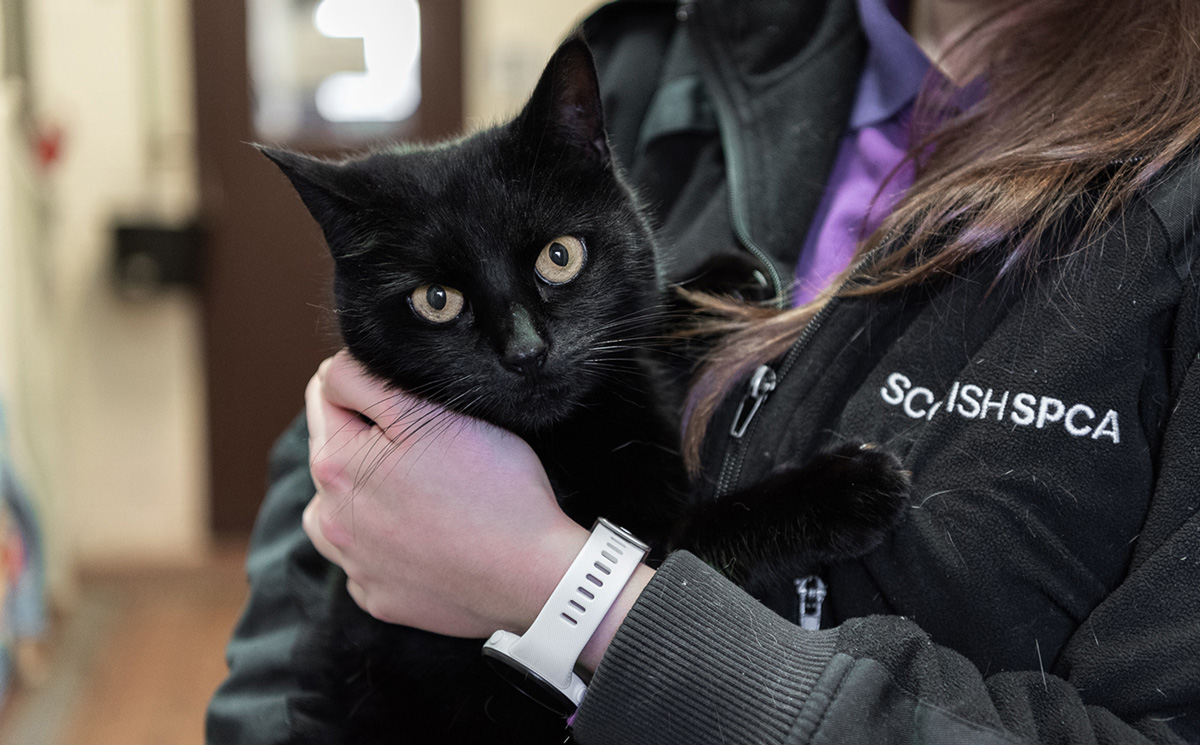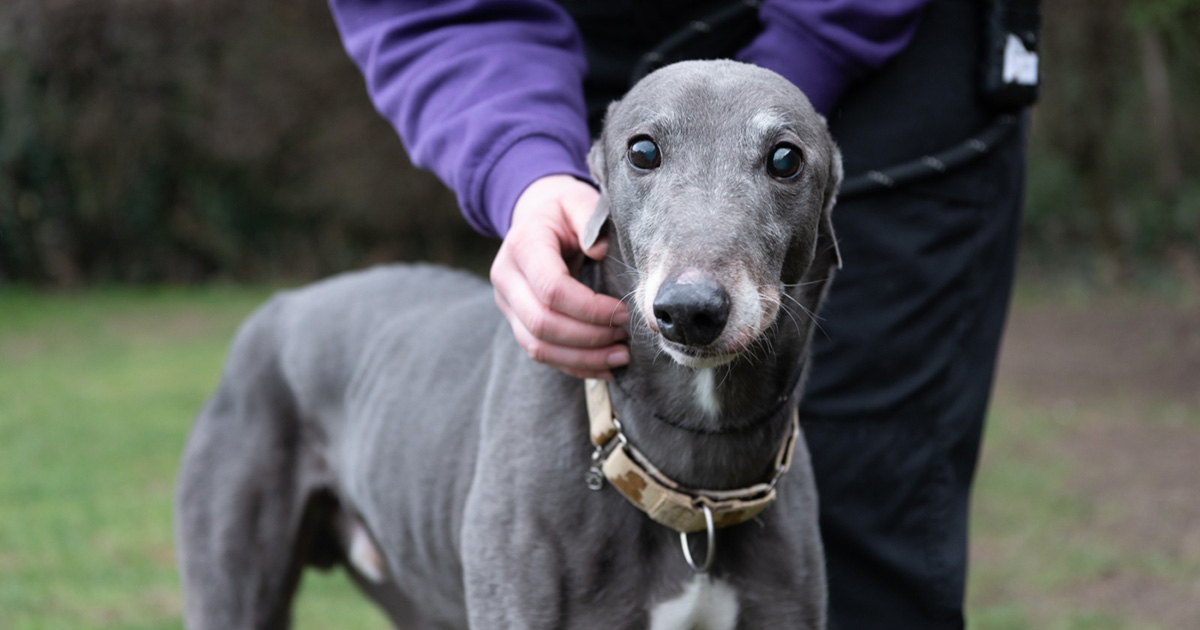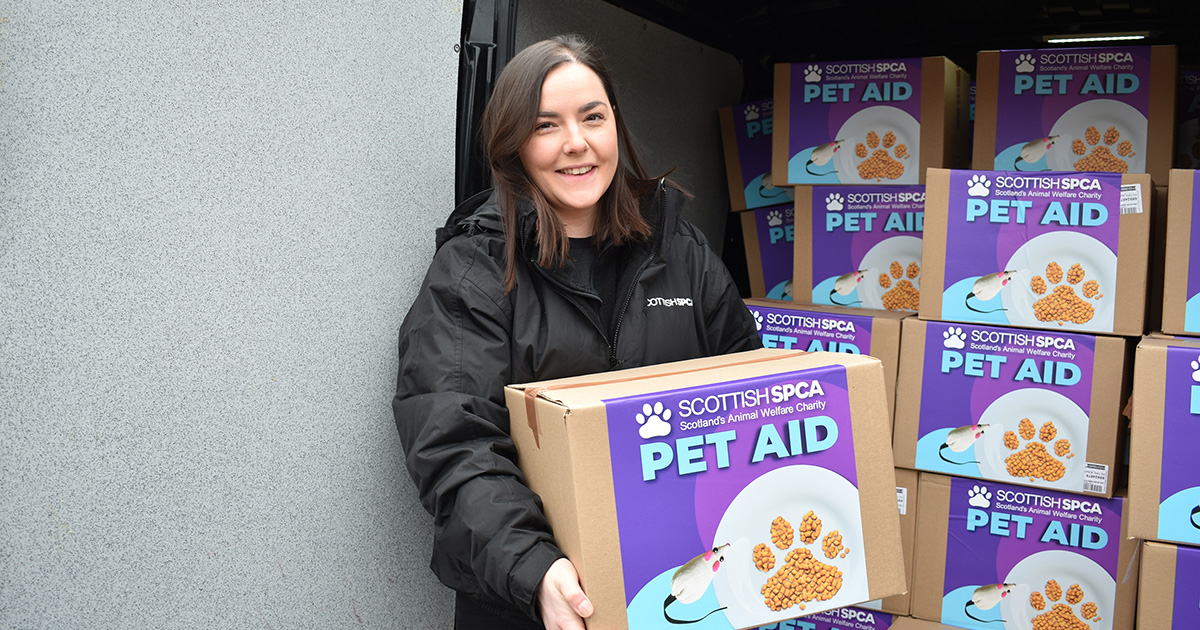Here in Scotland, the impact of the cost of living crisis has hit many households hard, with increasing numbers of people now finding it difficult to provide even the most basic of care for their pets. In many cases, this goes as far as not even being able to afford to feed them.
At the Scottish SPCA, we responded to this early on during the crisis by partnering with existing food banks operating across Scotland to provide pet food to those in need, and this service has continued to expand to now cover 48 food banks across the country.
At the same time, the number of calls to our helpline from people seeking to give up their animals trebled in 2022 to more than 4,000. Classically, the reasons for relinquishment have always remained fairly stable, with the arrival of new babies, moving into rental accommodation that does not allow pets, relationship breakdown and allergies being at the top.
However, while cost of ownership has also always been a significant factor, we have found this being mentioned as the top factor far more often. This concurs with findings published jointly by us and the RSPCA in The Animal Kindness Index in June 2022 where 72% of UK pet owners said they think the cost of living will impact their animals.
This has led to our centres being constantly full, and in many cases above capacity. This has been compounded by the surge in ownership during the COVID-19 lockdowns of 2020-21, with many finding it harder to keep their animals now they have returned to the office.

It is always incredibly hard and sad when animals are forced to leave a loving home. The hugely positive impact of the human-animal bond cannot be overestimated – especially when that relationship has existed over many years.
Our pets see us through the most difficult circumstances and, for children, they are often among the closest, most significant early companions we can have.
Breaking that bond can be devastating for the people, but can have an even more profound effect on the animals involved. That bond is one of the key factors determining the quality of life of a pet dog or cat, especially.
Even in households where the environment is far from perfect, and not all the basic animal welfare needs are being met, the animal’s mental state is made secure by the reliability of that relationship with their owner.
This is paramount in the minds of our inspectors when they visit any home where reports of animal neglect have been made. Unfortunately, it is a daily occurrence for them to visit homes where basic environmental, nutritional, health and behavioural factors are impacting an animal’s ability to thrive.
They will do all they can to encourage the owner to make the adjustments required to allow them to avoid causing their animal to suffer and, in all but the most extreme cases, this successfully avoids the need for relinquishment – up to a point.
Even though staff in our animal rescue and rehabilitation centres work tirelessly to provide the best environment for such animals as they possibly can, we know it is never the best thing for them to be relinquished into our care.
Of course, some situations exist where an animal has been caused unnecessary suffering by their owner, either by deliberate harm or extreme neglect; removing animals from such a harmful environment is unavoidable.
Loving homes
However, at the Scottish SPCA we believe that, wherever possible, it is always better for an animal to be rehabilitated in the familiar loving home to which it has become accustomed, with the people to whom it is bonded.
This is why we are now launching a pilot scheme in Glasgow to find ways of keeping more animals where they belong – in their loving homes. We are calling this the Pet Aid Veterinary Scheme. The vision behind the service is that it takes a community approach to do this well.
We all live in communities, and so do our animals, and we believe the answer to keeping pets safe and well in loving homes requires a community that understands and supports those needs.
We know that RVNs have the perfect skills and caring approach required to help us start on this adventure. That is why we are starting off by building a small pilot team of community RVNs to work closely with our local inspectors in domestic situations where animals are at risk.
By supporting owners in one area of Glasgow to begin with, these RVNs will be able to help with the most basic care, such as grooming, nail clipping, parasite control weight management and nutrition. They will also be able to support access to veterinary provision by working with neighbouring veterinary practices with a partnership approach to vet care.

Many of the animals in these situations will have rarely or never been examined by a vet, or at best their vet care will have been sporadic. One of the early tasks for the team will to be to develop key relationships in the area, reaching out to local veterinary teams and working with other partners, such as in social services and the Scottish Association for Mental Health, for example.
To reach this model, we have already been working closely with partners at PDSA, StreetVet, Vets4Pets and IVC Evidensia, as well as the RCVS. But we have no intention of being exclusive, and we want to work with all those in the community who are keen to be involved, including all veterinary practices.
We will begin by recruiting an RVN to establish and manage the community RVN team, and thanks to a generous donation of money, that recruitment process has now started (any interested RVNs, please get in touch).
Future plans
The future? Once we are up and running with this pilot, we very much hope, given the right funding, to extend this to as many places as possible.
It is important we get this right rather than go too quickly; however, the need is great. Too many animals are being relinquished into charity care and this is a significant animal and human welfare problem.
We also aim to develop community hubs, where people in target areas can access animal health care and advice. Watch this space for further developments.

Leave a Reply